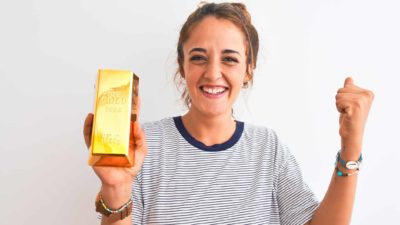The broader market is struggling to make ground today but there is one ASX healthcare share that is zooming ahead this afternoon.
This is the Invex Therapeutics Ltd (ASX: IXC) share price, which is currently surging 17.86% to 66 cents. If it closes at this level, it will mark a more than three-month high for the share.
In contrast, the All Ordinaries Index (ASX: XAO) is trading flat as falls in ASX big banks offset gains by ASX resource shares.
Why this ASX healthcare share is exciting the market today
Invex got the attention of investors today when it announced that its Investigational New Drug (IND) application had been approved by the US Food and Drug Administration (FDA).
The approval is for its Presendin drug, and it comes as the ASX healthcare company commences its phase III clinical trial, called IIH EVOLVE, in the United States.
The trial is for patients with idiopathic intracranial hypertension (IIH). This is a condition where pressure inside the skull increases for no obvious reason.
The condition can cause vision changes and headaches – symptoms that are similar to a brain tumour (but with no tumour present).
Why is the FDA's IND approval so important?
Securing the IND is essential to the phase III trial in the US. A clinical study sponsor has to obtain this before it can administer an investigational drug to humans.
According to the US FDA's website, the IND must be secured prior to interstate shipment and administration of any new drug or biological product that is not the subject of an approved New Drug Application or Biologics Product License Application.
The chief scientific officer and executive director of Invex, Professor Alex Sinclair, said:
We are excited to have received the IND for Presendin and IIH EVOLVE from the US FDA, based on the study protocol where we have already secured regulatory clearances in the UK and Australia.
We anticipate that a positive efficacy outcome of the study will facilitate further discussions with the FDA on the future registration requirements of Presendin for IIH patients in the US.
High hopes for this ASX healthcare company
Invex claims there are no existing regulatory approved drug therapies for IIH. This leaves invasive neurosurgical and ophthalmic surgeries as options for those with a severe case of the condition.
The microcap ASX healthcare share intends to open several clinical sites across the US to support the IIH EVOLVE trial. Invex will now complete the necessary institutional contracts and human ethics committee approvals.
Clinical trial details
The IIH EVOLVE study is a randomised, placebo-controlled, double-blind trial that will randomise 240 patients.
These patients are newly diagnosed with IIH and the trial will help determine the efficacy and safety of Presendin versus placebo.
The drug/placebo will be administered once a week over 24 weeks. The primary endpoint of the trial is the change in intracranial pressure from baseline, with key secondary endpoints related to vision and headache outcome measures. Invex intends to open up to 40 clinical sites globally.
Invex annual report
The company also released its annual report for FY22 today.
Invex recorded a net loss after tax of $3.950 million, an increase of 73% on the prior corresponding period. This was attributed largely to higher research and development costs of $2.642 million (compared to $1.139 million in FY21), reflecting the expenditure required to commence the IIH EVOLVE study.
The company reported an overall cash burn from operations of $3.377 million (up from $1.678 million in FY21).
Invex said it remained "in a strong financial position" with cash and cash equivalents of $29.339 million at 30 June 2022 (down from $32.777 million in FY21).
Invex share price snapshot
The Invex share price is almost 1% in the green over the past year, thanks to today's big rally. This is better than many other ASX healthcare shares and biotech shares.
These include the Mesoblast Limited (ASX: MSB) share price and Starpharma Holdings Limited (ASX: SPL) share price. These shares are both down around 40% over the past 12 months.









